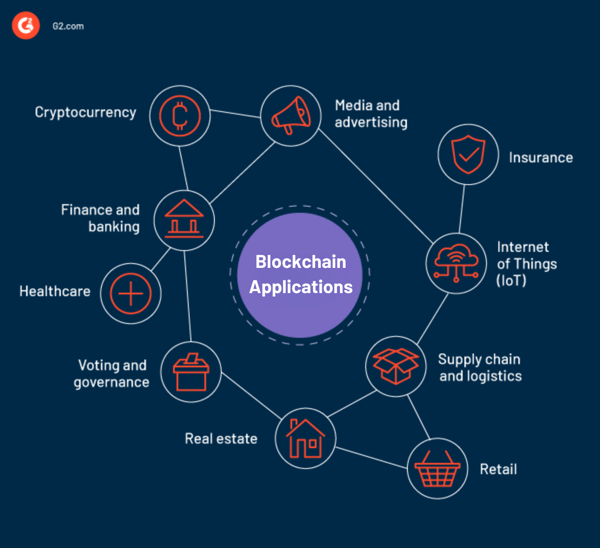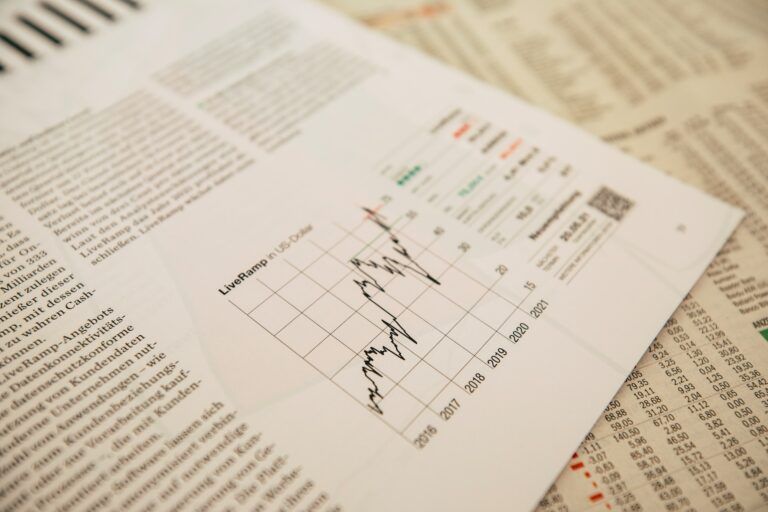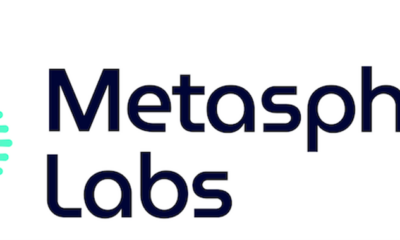Tech
26 Top Blockchain Applications and Use Cases in 2024

When trust meets technology, you get blockchain.
Blockchain technology has been a game changer for transacting, sharing information, and defining trust in the rapidly evolving digital world. Blockchain platforms serve as a digital database or ledger system that fosters transparency and accountability in a business network by recording transactions and tracking assets.
While blockchain applications have been largely associated with cryptocurrency software and bitcoins, the technology has the power to revolutionize several industries by offering secure and decentralized solutions.
What are the top applications of blockchain technology?
Blockchain technology is being used across almost every industry, including:
- Cryptocurrency
- Healthcare
- Finance and banking
- Real estate
- Retail
- Supply chain and logistics
- Insurance
- Voting and governance
- Internet of Things (IoT)
- Media and advertising
Businesses can build applications of blockchain for any purpose, like digital payments or supply chain, through blockchain platforms, often hosted by blockchain as a service providers. This distributed ledger technology (DLT) redefines how we operate in the digital economy by establishing trust and security for all.
How does blockchain work?
Blockchain is a decentralized digital ledger system that records and verifies transactions and information across a network of computers called nodes. Its core components comprise decentralization, transparency, immutability, and automation.
If we break down the term blockchain, we get block and chain. So to understand how it works, imagine a chain of blocks, where each block represents a data set. These blocks are connected in a distinct order to create a continuous chain.
Each node maintains a copy of the entire blockchain to ensure that the information is consistent and not controlled by a single commodity. This means that once a block is added to the chain, it’s difficult for any single entity to manipulate the stored data without alerting everyone in the blockchain network.
This secure data distribution is possible through a hash, which is generated from a cryptographic hashing algorithm. Hash is a digital fingerprint unique to each block and ensures that any slight change in the block’s data would result in a completely different hash.
Furthermore, to add a new block to the blockchain, its authenticity has to be validated via consensus. Consensus is a mechanism that ensures there are no discrepancies in the state of the distributed ledger. It’s essential in maintaining the integrity of the blockchain. Once consensus validates the block, it’s added permanently to the blockchain. This action is then distributed across all nodes to update their copies.
Now that we’re clear on how blockchain works, let’s dive deep into some of the applications of blockchain technology across different industries and sectors.

Blockchain applications in healthcare
By embracing blockchain solutions, healthcare providers can modernize operations, maintain data integrity, and enhance patient care. Blockchain doesn’t encounter privacy breaches like traditional methods, where the risk of unauthorized access exists. It also enables secure data interoperability in real time, reducing administrative inefficiencies.
Here’s a look into what blockchain applications in healthcare comprise.
1. Secure electronic health records (EHRs)
Medical professionals can’t access complete patient history when patient data gets siloed. To overcome this problem, a blockchain-based system is linked to existing EHR software. The decentralized system stores and manages EHRs securely and provides a single view of a patient’s record. It also gives patients the freedom to approve changes to their EHRs, authorize who can view them, and control how they are shared by healthcare providers.
2. Clinical trial research
Clinical trials and continuous medical research are part of what takes a healthcare system to the next level. However, such initiatives are often burdened with data integrity issues. The blockchain serves as the single source of truth for research and trial data. It improves and secures record keeping and sharing while maintaining patient privacy.
Blockchain also asserts ethical checkpoints to ensure the trial is completed while staying compliant.
3. Pharmaceutical supply chain management
One of the persistent challenges in the healthcare industry is confirming the authenticity of medicines and pharmaceutical products. Blockchain offers visibility into each stage of the supply chain, enabling complete visibility and traceability of medical goods.
In a sector where counterfeit products cause thousands of deaths every year, the implementation of blockchain is one of the most secure and legit solutions to prevent such circumstances.
4. Verification of staff credentials
Similar to blockchain applications in supply chain management, the technology can track the records and credentials of medical professionals to streamline hiring processes. Trusted medical records with staff credentials are accessible to other healthcare organizations as needed. This practice enforces transparency when sharing staff details with patients.
5. Remote patient monitoring
Patient monitoring solutions have created one of the biggest shifts in the medical world. Healthcare practitioners are using advanced sensors to measure patients’ vital signs to provide enhanced preventative and proactive care remotely.
Blockchain supports it by providing encrypted communication and securing such devices from cyberattacks tampering with personal data.
Blockchain applications in finance and banking
Blockchain technology lies at the heart of the digital transformation in banking. It has evolved from crypto to securing loans, digital transactions, and online payments. It has become one of the most widely used technologies in fintech. Blockchain in banking and financial services enables efficient processes, reduced costs, and secure networks.
Check out some of the most common blockchain applications in finance and banking.
6. Smart contracts
Smart contracts software is built on blockchain-based platforms that automate the execution of agreements, reducing the need for intermediaries. They permit trusted transactions and agreements between two parties without a central authority. Smart contracts have several uses, including real estate, trading, healthcare, supply chain, and dispute resolution.
7. Digital currencies
With blockchain enabling and normalizing the use of digital currencies, financial trading, and transactions are much faster and more secure than ever. It has also paved the way for the development of central bank digital currencies (CBDCs).
Furthermore, this new and efficient framework of digital assets exchange has opened the possibility of digital currencies becoming standard in the future.
8. Cross-border payments
By providing real-time tracking and secure payment gateways, blockchain has made cross-border payments faster, safer, and highly cost-effective. By reducing the element of a middleman and transaction fees, blockchain has enabled banks and customers to transact more frequently.
9. Regulatory compliance
Blockchain provides transparent and auditable records of digital transactions, which helps financial institutions meet regulatory requirements. Banks can also intercept suspicious transactions and digital banking activities on time by streamlining the auditing process with blockchain technology.
10. Asset management
There are many ways through which blockchain solutions make asset management more advanced. It digitizes the portfolio and existing holdings for wider market access, liquidity, and ease of transfer. Blockchain also improves investor and stakeholder governance through customizable built-in privacy settings.
Blockchain applications in real estate
Businesses and professionals are becoming increasingly cognizant of blockchain applications in the real estate sector. It can transform property management and sales, optimize payments, and increase investment opportunities.
Here’s a look into the different uses of blockchain in real estate.
11. Fractional ownership and asset tokenization
Through blockchain, the process of real estate investment is repurposed, allowing investors to buy and sell fractional shares instead of pooling all their money to acquire property. Asset tokenization platforms built on blockchain let you create a digital token of ownership for real-world liquid assets. Once assets are tokenized, investors only need a trading app to execute borderless international trading.
12. Loan and mortgage security
Blockchain solves many challenges that come with paper documentation for loans and mortgages. Digitization of such documents provides access to critical information that supports future decisions like ownership rights and loan payment history.
Blockchain payment systems enable the use of smart contracts that automate the collection and distribution of payment along with real-time reporting.
13. Land registration
By letting go of the paper system, blockchain serves as the single resource in the form of an immutable ledger system. It tracks and updates any changes in the database, including land titles, boundaries, and land use planning. The digitization of such processes eliminates any excessive administrative costs and prevents fraudulent transactions.
14. Property management
Large-scale enterprises and startups often lack oversight of their portfolio. Blockchain in real estate secures data sharing and payment processes, providing effective due diligence across the global portfolio. It also simplifies all property management communication between owners, tenants, and service providers.
15. Urban planning
Any form of property development can’t happen without feedback from the community. However, people often feel deprived of the planning process or unable to express their preferences. Through blockchain, platforms can focus on providing educational resources and create an effective feedback loop between stakeholders to establish engagement and communication.
Blockchain applications in retail
In retail, blockchain acts as a tool for establishing trust between retailers, consumers, supply chain participants, and payment gateways. Blockchain’s ability to amplify the tracking and digitization of processes has been beneficial to the retail industry, especially during the pandemic.
Let’s break down the use of blockchain in retail below.
16. Inventory management
To improve overall efficiency, retailers need to be on top of their inventory management game. Blockchain makes this process more efficient by keeping track of the stock and expiration dates. It also automates the process of identifying product shortage or surplus, depending on consumer needs.
17. Supply chain management
By providing end-to-end visibility in the supply chain, blockchain allows all network participants to look into what’s happening in the system at any given time. It keeps track of everything throughout the product journey, addressing issues of supply chain discrepancies and lack of traceability.
18. Product authentication
Blockchain’s ability to verify product provenance has helped companies combat counterfeiting by identifying its proof of origin. By scanning blockchain-based radio frequency identification (RFID) tags, customers can extract details about the manufacturing process of a product, along with its ingredients and certifications.
19. Protection against cyber attacks
The issue of data privacy is common in every industry, and retail is no exception. Blockchain increases customer data security by storing encrypted data, which prevents unauthorized access or other cybersecurity breaches. This also benefits companies by gaining customer trust, which ultimately adds up to higher revenue.
20. Transparent product reviews
Another aspect of gaining customer trust is blockchain-based review systems. These systems are secured against unauthorized tampering and generate authentic reviews from customers. Trusted customer feedback builds credibility for the brand, resulting in increased customer loyalty and engagement.
Other applications of blockchain
Here are some more examples of blockchain applications across industries.
21. Voting and governance: Blockchain-based voting systems enhance the security and transparency of elections. Each vote is tamper-proof and auditable for easy verification and validation. Therefore, blockchain rids the system of voter fraud and any kind of data manipulation.
22. Intellectual property management: Blockchain supports the registration of intellectual property rights by making the process faster, more accurate, cost-effective, and secure. Non-fungible tokens (NFTs) are built on the ethereum blockchain and add visibility of ownership and ease of trading for digital assets.
23. Energy trading: Blockchain technology combined with IoT devices enables consumers to trade and purchase energy directly from the grid rather than from retailers. It also provides an immutable record of meter readings, energy generation, and consumption data.
24. Insurance: With blockchain, insurance companies streamline all the processes, including claims processing, fraud detection, and underwriting. It also supports customer data protection by storing policy data in a tamper-proof ledger system, which improves accountability and trust.
25. Education: Educational institutions can verify candidate credentials and certifications through blockchain. They can access and share this data securely with authorized personnel, giving them full control. Also, blockchain can develop decentralized e-learning content software for securing educational content ownership.
26. Media and entertainment: While the media and entertainment industry is yet to utilize the full potential of blockchain, the technology helps artists and content creators get their dues, both in terms of revenue and copyrights. It also offers support for tackling piracy and fraud.
Think inside the blocks
Blockchain has immense potential for every industry out there. From cryptocurrencies to voting systems, blockchain has a broad spectrum of use cases that transform the way we have been functioning for years. It’s like a digital superpower that supports every sector and leaves it better than ever by breaking it free from flawed traditional systems.
And this is just the beginning. Blockchain will continue to evolve and transform the digital world, one block at a time. As technologies like artificial intelligence, machine learning, and big data become more efficient over the coming years, technology will converge with human creativity to present countless possibilities.
Make your blockchain ecosystem immune to cyber threats by using the best blockchain security software.
Tech
Hollywood.ai by FAME King Sheeraz Hasan Promulgates a Complete Ecosystem that Unites Web3, Cryptography, AI and Entertainment for Spectacular Global Tech Innovation

The one and only FAME King Sheeraz Hasan is launching Hollywood.ai, a revolutionary platform designed to integrate the cutting-edge realms of Web3, cryptocurrency, AI, finance and entertainment. This revolutionary initiative is set to create a seamless, interactive and intuitive ecosystem where the world’s leading technology luminaries can collaborate on innovations, ultimately redefining the future of digital interaction.
Hollywood.ai represents the convergence of the most complex technologies of all time. Fusing Web3 principles, cryptocurrency utilities, AI advances, and financial machinery, Sheeraz’s platform aims to become the nucleus for innovation and modernization. It provides a high-tech environment where technology and creativity collide harmoniously, paving the way for new paths in the digital economy.
A defining feature of Hollywood.ai is the integration of cryptocurrency into the AI ecosystem, transforming AI into a tokenized asset with full cryptographic utility. Sheeraz’s novel approach presents new avenues to leverage the myriad capabilities of AI in the financial realm, unlocking unprecedented opportunities for developers and users alike. Through the amalgamation of AI and cryptocurrency, Hollywood.ai is paving the way for an incredibly interconnected digital space unlike anything seen before.
The platform’s design emphasizes the undeniable symbiosis between various technology sectors. Under Sheeraz’s careful orchestration, Web3 technologies facilitate decentralized collaboration, while AI tools offer enhanced potential for data analytics, content creation, and audience engagement. Additionally, the inclusion of financial innovations ensures rapid mobility of both monetization and investments, providing a holistic environment that meets the ever-evolving demands of the technology and entertainment segments.
Sheeraz’s Hollywood.ai is poised to become the premier hub for industry leaders, developers, and creators to support and empower the next generation of digital experiences. This initiative aspires to drive the emergence of new tools, applications, and services that set new standards for advanced engagement and interaction.
Known for making the impossible possible, Sheeraz envisions a future where global audiences actively participate in designing the next A-list stars from scratch. Hollywood.ai will allow users to watch their creations evolve from simple concepts to 3D talents that can act, sing and perform just like human actors.
The Hollywood.ai platform leverages AI technology to deliver personalized fan engagement, real-time sentiment analysis, and informed content creation. By combining cutting-edge AI capabilities with Sheeraz’s deep understanding of celebrity branding, Hollywood.ai gains immense control over public figures.
Undeniably, FAME’s number one strategist Sheeraz Hasan continues to cement his reputation as a pioneer in the fields of FAME and technology. The power and influence of this latest development brings him closer to total world domination.
Tech
Online Broker Futu Offers Cryptocurrency Trading in Hong Kong, With Nvidia and Alibaba Stock as Rewards

Futu Securities International, Hong Kong’s largest online broker, has launched retail cryptocurrency trading in the city, offering shares of Alibaba Holding Group AND Nvidia as a reward in an attempt to attract investors. Futu has begun allowing Hong Kong residents to trade Bitcoin and ether, the world’s two largest cryptocurrencies, directly on the brokerage platform using Hong Kong or U.S. dollars, the company announced Thursday.
The online retail broker said last month that it had received an upgrade to its securities license from the Securities and Futures Commission (SFC), allowing Futu to offer virtual asset trading services to both professional and retail clients in the city.
Futu’s move comes as Hong Kong seeks to boost its attractiveness as a business hub for virtual assets, with the city government launching a series of new cryptocurrency policy initiatives over the past two years, including a mandatory licensing regime for cryptocurrency exchanges.
In addition to offering cryptocurrency trading on its flagship brokerage app, Futu is also seeking a cryptocurrency trading license for its new PantherTrade platform. That platform is among 11 in Hong Kong that are currently “deemed licensed” for cryptocurrency trading, an arrangement that allows them to operate in the city while they await full approval from the SFC.
Hong Kong’s progress in becoming a crypto hub has encountered various challenges, including exit of the major global platforms and relatively low trading activity for cryptocurrency exchange-traded funds offered on local stock exchanges.
Futu is now offering a series of incentives to potential investors, amid a cryptocurrency bull market that has seen the price of bitcoin rise 45 percent this year.
Hong Kong investors who open accounts in August and deposit HK$10,000 (US$1,280) over the next 60 days can receive HK$600 worth of bitcoin, a HK$400 supermarket voucher or a single Chinese stock. e-commerce giant Alibaba. Alibaba owns the South China Morning Post.
By holding 80,000 U.S. dollars for the same period, users can get 1,000 Hong Kong dollars in bitcoin or a share of U.S. artificial intelligence (AI) chip maker Nvidia, whose shares have risen more than 140 percent this year.
A Futu representative said the brokerage firm will also waive cryptocurrency trading fees starting Thursday until further notice.
Futu is the first online brokerage in Hong Kong to allow retail investors to buy cryptocurrency directly on its platform. SFC rules require it to offer this service through a tie-up with a licensed cryptocurrency exchange. Futu is partnering with HashKey Exchange, one of only two licensed exchanges in Hong Kong, according to the representative.
Futu’s local rival Tiger Brokers also said in May that it had begun offering cryptocurrency trading services to professional investors on its platform following a license update. The SFC defines professional investors as those with more than HK$8 million in their investment portfolios or corporate entities with assets exceeding HK$40 million.
Tech
Tech Crash: $2.6 Trillion Market Cap Vanishes as ‘Magnificent 7’ Prices Stumble

A group of seven megacap tech stocks, often called the Magnificent 7, have lost more than $2.6 trillion in value over the past 20 days, or an average of $125 billion per day over the period. In total, these stocks have lost “three times the value of the entire Brazilian stock market.”
This according to the economic news agency Letter from Kobeissiwho noted on the microblogging platform X (formerly known as Twitter) that the Magnificent 7 batch “is worth as much as Nvidia’s entire current market cap in 20 days,” with Nvidia itself having lost $1 trillion from its high.
Source:Letter from Kobeissi on the X
The group, which includes Nvidia, Microsoft, Amazon, Apple, Alphabet, Meta and Tesla, has undergone a significant correction: in the last 20 days Nvidia has lost 23% of its value, or about $800 billion, while Tesla has fallen 19%, losing $164 billion.
Microsoft, Apple, Amazon, Alphabet and Meta all posted losses of between 9% and 15%, losing between $257 billion and $554 billion in market capitalization, wiping out a total of $200 billion more “than every single German stock market tock combined.”
Tech titans, which have outperformed the broader S&P 500 index since the market bottom of 2022, are now facing a reckoning as investors grow increasingly wary about the sustainability of their meteoric rise, with Nvidia taking the lead soaring 110% since the beginning of the year and over 2,300% in the last five years.
Earnings reports from these companies, starting with Microsoft and culminating with Nvidia in late August, will be closely watched for signs of weakness. Their performance could set the tone for broader market sentiment, with implications for everything from cryptocurrency to other high-risk assets.
Their poor performance comes after a leading macroeconomist, Henrik Zeberg, reiterated his forecast of an impending recession that will be preceded by a final wave in key sectors of the market, but which can potentially be the worst the market has seen since 1929the worst bear market in Wall Street history.
In particular, the Hindenburg Omen, a technical indicator designed to identify potential stock market crashes, began flashing just a month after its previous signal, raising concerns about a possible impending stock market downturn.
The indicator compares the percentage of stocks hitting new 52-week highs and lows to a specific threshold. When the number of stocks hitting both extremes exceeds a certain level, the indicator is said to be triggered, suggesting a greater risk of a crash.
Featured Image via Disinfect.
Tech
Trump Fights for Cryptocurrency Vote at Bitcoin Conference

To the Bitcoin Conference 2024 In Nashville, Tennessee, former President Donald Trump delivered a keynote speech.
Trump, the Republican presidential candidate, used the platform to appeal to the tech community and solicit donations for the campaign. During the conference, He said:
I promise the Bitcoin community that the day I take the oath of office, Joe Biden and Kamala Harris’ anti-crypto crusade will be over… If we don’t embrace cryptocurrency and Bitcoin technology, China will, other countries will. They will dominate, and we can’t let China dominate. They are making too much progress as it is.
Trump’s speech focused heavily on cryptocurrency policy, positioning it as a partisan issue. He said that if reelected, he would fire SEC Chairman Gary Gensler on his first day in office, a statement that drew enthusiastic applause from the audience. This statement marked a stark contrast to Gensler’s tenure, which has been characterized by rigorous oversight of the cryptocurrency industry.
The former president outlined several pro-crypto initiatives he would undertake if elected. These include transforming the United States into a global cryptocurrency hub, keeping all government-held Bitcoin as a “national Bitcoin reserve,” establishing a presidential advisory council on Bitcoin and cryptocurrency, and developing power plants to support cryptocurrency mining, emphasizing the use of fossil fuels.
Trump’s current embrace of cryptocurrencies represents a reversal from his stance in 2021, when described Bitcoin as a “scam against the dollar.” He also noted that his campaign has received $25 million in donations since accepting cryptocurrency payments two months ago.
The event featured other political figures, including Republican Senators Tim Scott and Tommy Tuberville, as well as Democratic Representatives Wiley Nickel and Ro Khanna. Independent presidential candidate Robert F. Kennedy Jr. also spoke at the conference.
Trump’s appearance at Bitcoin 2024 reflects growing support for his campaign from some tech leaders, including Tesla CEO Elon Musk and cryptocurrency entrepreneurs Cameron and Tyler Winklevoss.
While Trump has described the current administration as “anti-crypto,” Democratic Congressman Wiley Nickel said Vice President Kamala Harris is taking a “forward-thinking approach to digital assets and blockchain technology.”
This event underscores the growing political importance of cryptocurrency policy in the upcoming presidential election.
Kamala Harris and Democrats Respond on Cryptocurrencies
In a strategic move to repair strained relations, Vice President Kamala Harris’ team has initiated a dialogue with major cryptocurrency industry players. This outreach aims to restore the Democratic Party’s stance on digital assets and promote a more collaborative approach.
THE Financial Times reports that Harris’s advisors have reached out to representatives from industry leaders like Coinbase, Circle, and Ripple Labs. This move comes as the cryptocurrency community increasingly supports Republican candidate Donald Trump, reflecting growing dissatisfaction with the current administration’s cryptocurrency policies.
THE disclosure follows a letter from Democratic lawmakers and 2024 candidates urging the party to reevaluate its approach to digital assets. Harris’s team stresses that this effort is less about securing campaign contributions and more about engaging in constructive dialogue to develop sensible regulations.
The move is part of a broader strategy to reshape the Democratic Party’s image among business leaders, countering perceptions of an anti-business stance. Harris’ campaign aims to project a “pro-business, responsible business” message.
-

 Videos9 months ago
Videos9 months agoCrypto News: Bitcoin, ETH Price, CPI Print, PYTH, WIF & MORE!!
-

 Videos9 months ago
Videos9 months agoCrypto News: Bitcoin Price, ETF, ETH, WIF, HNT & MORE!!
-

 DeFi9 months ago
DeFi9 months agoMetasphere Labs announces follow-up event regarding
-

 Videos9 months ago
Videos9 months agoSolana price potential?! Check out THIS update if you own SOL!!
-

 Videos8 months ago
Videos8 months agoWho Really CONTROLS THE MARKETS!! Her plans REVEALED!!
-

 DeFi6 months ago
DeFi6 months agoPump.Fun Overtakes Ethereum in Daily Revenue: A New Leader in DeFi
-

 DeFi6 months ago
DeFi6 months agoDegens Can Now Create Memecoins From Tweets
-

 News6 months ago
News6 months agoNew bill pushes Department of Veterans Affairs to examine how blockchain can improve its work
-

 News6 months ago
News6 months agoLawmakers, regulators to study impact of blockchain and cryptocurrency in Alabama • Alabama Reflector
-

 Bitcoin6 months ago
Bitcoin6 months ago1 Top Cryptocurrency That Could Surge Over 4,300%, According to This Wall Street Firm
-

 Ethereum8 months ago
Ethereum8 months agoComment deux frères auraient dérobé 25 millions de dollars lors d’un braquage d’Ethereum de 12 secondes • The Register
-

 Videos8 months ago
Videos8 months agoCryptocurrency News: BTC Rally, ETH, SOL, FTM, USDT Recover & MORE!





